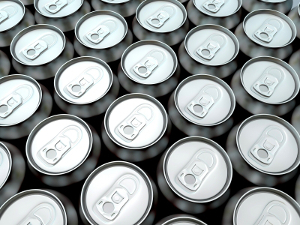 ince the US Senate held a hearing on logjams at metal storage facilities and rising fees. Since then, costs have gone up and waiting times for delivery at some sites are even longer.
ince the US Senate held a hearing on logjams at metal storage facilities and rising fees. Since then, costs have gone up and waiting times for delivery at some sites are even longer.The London Metal Exchange, which oversees more than 700 warehouses, has been blocked from easing delays by Moscow-based United Co. Rusal, which as the world’s biggest aluminum producer stands to lose from shorter backlogs. The LME issued a new rule that storage facilities with the longest wait times had to release more metal than they took in. Rusal blocked the measure in a UK court, and the exchange is appealing in a case that started in London today.
Wait times to obtain aluminum stretch to almost two years or longer in Detroit and Vlissingen, Netherlands, the two biggest sites for the LME-tracked metal. That’s up from about 15 months a year ago, when US Senator Sherrod Brown called on US regulators to force changes in metals warehousing. Instead, higher prices benefited producers including Rusal and New York-based Alcoa Inc. and hurt end-users such as beverage makers.
Aluminum Supply
The issue came to Brown’s attention after companies such as brewer MillerCoors LLC complained that LME-authourised warehouse operators including Metro International Trade Services LLC, a unit of Goldman Sachs Group Inc., and Glencore Plc-owned Pacorini Metals were creating artificial limits on aluminum supply. US regulators subpoenaed documents from warehousers including Metro last year. At least 36 lawsuits have been filed against the LME, Goldman Sachs and metal suppliers.
The price of aluminum for delivery in three months on the LME gained 11 per cent in the past year to $1,988 a metric ton. Surcharges to obtain the metal in the US and Europe, known as premiums, increased as much as 73 per cent.
The backlog for aluminum at depots in Detroit operated by Metro increased to 681 days as of the end of June from 675 at the end of May, according to the LME data. The period at warehouses owned by Pacorini in Vlissingen lengthened to 774 days from 716 in May. Owners of the metal pay storage fees during that time.
The LME’s new “load-in, load-out” rule, slated to have begun in April, would have “little material effect on warehouse queues,” Rusal said yesterday in a statement. The bourse should have explained why it rejected the option of capping rents at backlog-affected warehouses and a consultation on the proposed rules was “clearly unfair,” the company said in its court documents.
Metal Queues
“For the LME to address the problem of aluminum queues, it needs to implement its proposed new delivery-out rules,” said Nic Brown, head of commodity research at Natixis SA in London. “That’s not to say that the new rules would suddenly cure the problem. But you have to start somewhere.”
Global aluminum costs are $6 billion higher because of the long waits, according to Novelis Inc., a manufacturer of rolled aluminum whose customers include Coca-Cola Co. and Ford Motor Co. That’s twice the amount MillerCoors estimated last year.
Just this year, the jump in premiums alone has cost North American consumers an additional $650 million, according to the Beer Institute, a Washington-based industry group.
“Clearly there hasn’t been a very visible regulatory response,” said Nick Madden, chief procurement officer at Novelis. “This process clearly will take a long time.”
The surcharge for obtaining a specific parcel of aluminum in a specific location, which is added to the LME benchmark price, is at 19.75 cents a pound in the US Midwest, compared with 12 cents a year ago, according to Metal Bulletin data. The fee reached a record 20.9 cents in January.
Goldman Sachs has said its Metro unit is up for sale. The bank said last month it started complying with the load-in, load-out rule even after the court blocked the measure.
Higher Costs
Warehouse waits are not the only reason costs are higher. Aluminum producers have curbed output and demand is stronger, helped by carmakers who are switching to the metal as a lighter alternative to steel.
Alcoa, the largest US producer, said it will include new language in its quarterly filings with the US Securities and Exchange Commission explaining risks from a potential “flood” of stockpiled aluminum arriving on the market.
Competition Law
There won’t be an immediate impact should the court rule in favor of the LME, according to Natixis. The exchange would have to give warehouse operators some form of grace period before introducing changes, according to Macquarie Group Ltd.
“As they do make changes there are so many opinions, no matter what move they make, if it’s helpful to someone, it’s probably going to be unhelpful to someone else and so they face litigation,” said Madden at Novelis.





